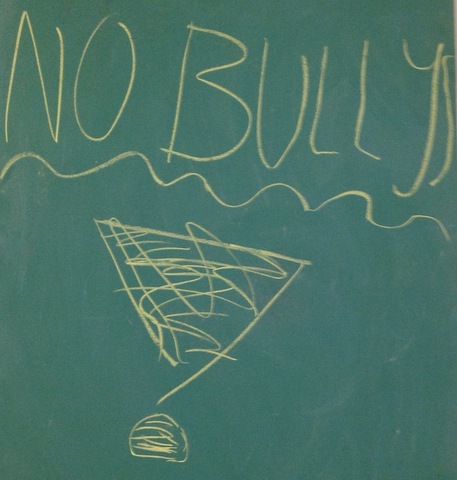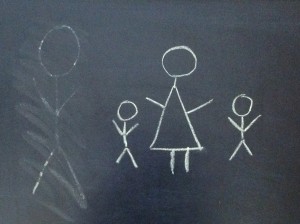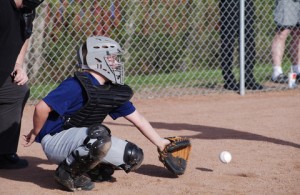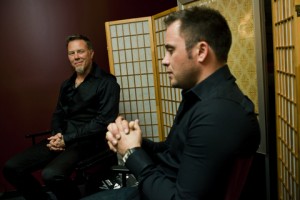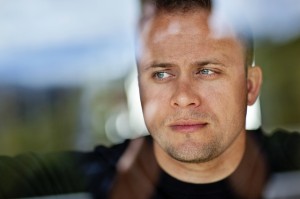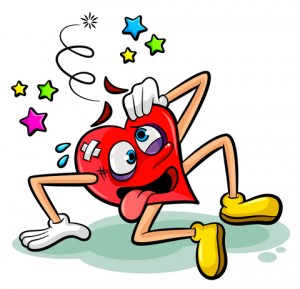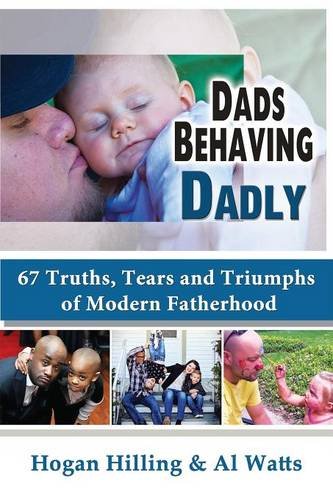I can still feel the steam hug my face as it rises from the marshmallow-covered heap of sweet potatoes and cranberry-laden pile of turkey that serve as staples of many American homes on Thanksgiving Day.
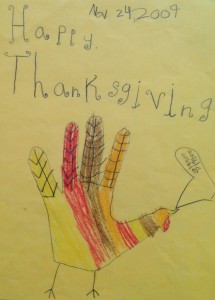 I’m not complaining, mind you. I love turkey on Thanksgiving as much as the next American, but it also represents an evolving contradiction in the Allanach household in terms of the lessons we teach our children about animals, food, and overall nutrition.
I’m not complaining, mind you. I love turkey on Thanksgiving as much as the next American, but it also represents an evolving contradiction in the Allanach household in terms of the lessons we teach our children about animals, food, and overall nutrition.
Simply put, I don’t eat much meat, but when I do it must be as pure as possible and raised humanely, which is no easy task given the state of factory farming in America. I don’t want my children eating chicken or steak that is full of hormones, antibiotics, and whatever else winds up in drumsticks and milk as a result of America’s desire for cheap food.
And I don’t want my children to nourish their bodies if it means supporting the needless suffering by billions of farm animals stored in warehouses not fit for a cockroach infestation.
I’m not trying to be overtly political, but no one can escape the politics involved in America’s system of food production, and that inevitably affects what we place in front of our children at dinner.
I’ve read one statistic that 70 percent of all antibiotics manufactured in America go to animals in factory farms. They’re simply cramped in so tight they would all die of disease if farmers don’t medicate their animals. How appetizing.
I’ve also read a statistic refuting that number, one that pins the percentage closer to 13.
What could explain such a wide disparity in a fact that should be as clear as 2+2? Politics.
One number comes from critics and another from farmers. I’m sure you can guess which is which.
So what’s a father to do? (Aside from eat whatever his wife places in front of him without complaint, thank you very much.) Use his common sense.
Nature never intended for animals to be cramped in so tight they need human intervention to remain healthy, therefore the only sensible option is free range and organic. And we pay handsomely for it, roughly three times more for milk and eggs.
A frozen turkey from the supermarket might run 79 cents a pound, while I’ve paid $3.79 per pound for our Thanksgiving turkeys when we host dinner.
Still, I would rather buy a more expensive bird that lived cage-free and doesn’t have any hormones or antibiotics running through it than buy an inexpensive bird that lived in quarters so tight it can’t flap its wings and is full of the best pharmaceuticals farmers can buy.
Plus, I support a family farm in my own Frederick County instead of some corporation that is seven or eight states away. But this is where the evolving contradiction comes in play.
Karen and I teach our children to love animals, and that we must care for and respect them because humans have dominion over them. Whenever we drive by a field on which animals are grazing, our daughter Celeste goes on and on about how cute they are.
At 9 years old, Celeste is beginning to realize the world is much more complex than she ever dreamed. As a result, she often questions the food we place in front of her. A fish stick is no longer just a stick of seafood; it was once a fish that swam free in the sea.
A chicken nugget is no longer just an odd-shaped piece of breaded meat; it was once a farm animal that ran free and at one point was a cute baby. To make matters more complicated, Celeste wrote the following story about Thanksgiving (the writer in me wants to correct the spelling, but the dad in me is smiling too big to see straight):
“Once apon a time there was a turkey named Tom Turkey. It was Thanksgiving at Tom’s farm. He was afraid he would get picked to be rosted. People came to pick out turkeys. Tom’s friends got picked. Tom was sad. Now he had no friends. It was Thanksgiving and more and more people came to the farm to pick out turkeys. They even picked out Tom’s mom and dad. Then Tom said ‘STOP EATING TURKEYS.’ The people were shoked, apsalotly shoked. They have never seen a turkey talk before. The people gave the turkeys back and ran far away. Tom was happy and back to his life. THE END.”
The contradiction is obvious. How can we teach our children to love and respect animals in one breath yet ask them to eat animals in the next?
I wish I had the perfect answer to that question because at some point Celeste is going to ask it directly of me. For now, all I have is that it’s normal for people to eat meat, but it’s also equally normal to not eat meat. Plenty of people are vegan and perfectly healthy.
We fall somewhere in the middle. Karen would be happy if we ate no meat, but I enjoy a grilled burger on a cool summer evening. So we eat little meat, but choose to support farms that give animals a humane, drug-free life. It’s not a perfect, but what in life is?
This is a repost of a column that ran in The Gazette on Dec. 2, 2010.



